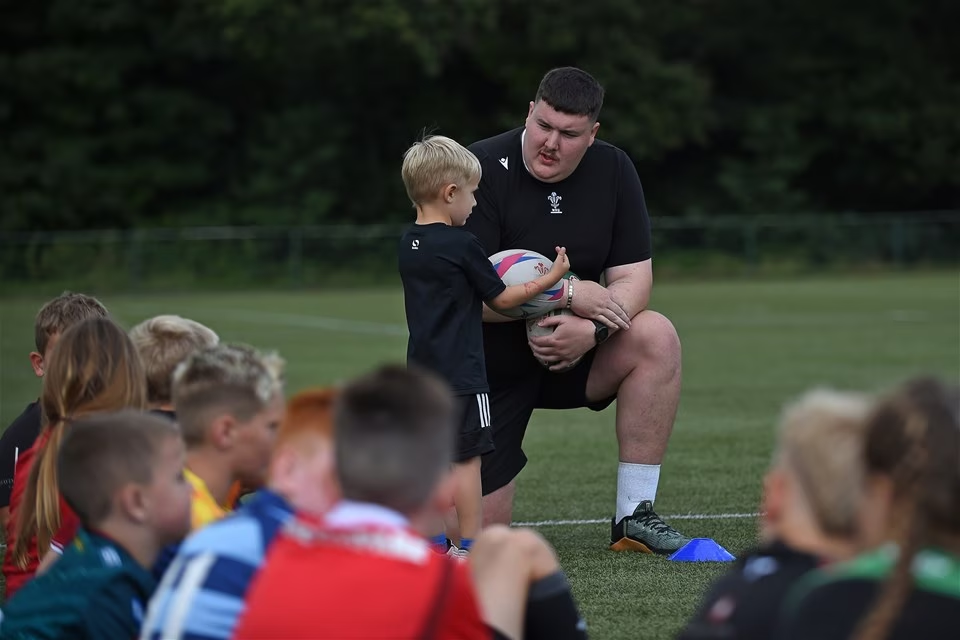Reporting
This section sets out the necessary procedures and minimum standards to follow for Welsh Rugby Union employees or volunteers when allegations of abuse or poor practice are reported.
It’s hugely important that you read the below flowchart to enable you to know if you have a concern or complaint and the correct way to raise or report it.

The WRU assures all employees and volunteers that it will fully support and protect anyone who, in good faith (without malicious intent), reports their concern that a child may be subject of abuse.
The WRU are committed to ensuring that in any safeguarding disciplinary investigations involving children, that the welfare of the child remains paramount, and that there is a child centred approach.
Everyone has a legal and moral responsibility to respond to any concerns, irrespective of whether the cause of the concern is internal or external, and to ensure that they take action by reporting this in line with the WRU’s procedures.
Even if the incident has occurred outside a sporting environment, the WRU Safeguarding Team must be notified. If the allegation relates to a rugby volunteer who is subject to an investigation, this may indicate a risk to children within the sport.
In some cases, sharing a concern will not trigger an investigation, but may help to build up a picture, along with information from other sources, which suggests that a person may be suffering abuse or harm.
There may be an occasion when a child approaches an individual (CSO, Coach, Volunteer etc.) and indicates that they are being abused. In such instances, it is vital that appropriate and immediate action is taken.
It is acknowledged that feelings generated by the discovery that a member of staff or volunteer is, or may be, abusing a child, will raise concerns among other staff or volunteers. This includes the difficulties inherent in reporting such matters. If any person has knowledge, concerns or suspicions that a person is suffering, has suffered or is likely to be at risk of harm, it is their WRU Safeguarding Policy responsibility to ensure that the concerns are referred to Social Services or the Police, who have the statutory duties and powers to make enquiries and intervene when necessary.
People who are being abused will only tell people about this, that they trust, or who they feel safe with. Coaches can very often be in this position of trust, and have a close relationship with a child or adult that they coach. They may see the coach or other volunteer as a person who they can trust and confide in. It is important that all volunteers and coaches in particular have an understanding of what to do if this happens.
It is extremely important that people are not bystanders when it comes to reporting concerns. The ‘bystander’ effect has been a prominent issue in some cases of non-recent abuse reported within the sport sector. It is clear that in some of these cases there was a level of suspicion about behaviours which constituted a potential risk to children.
The role of the ‘bystander’ plays an important part in the prevention of sexual abuse and in reducing risk. The role is not confined to reporting concerns after abuse may have occurred, but more importantly intervening to challenge thinking and behaviour in order to prevent abuse occurring.
This can happen where people operate in an environment, where they are equipped and supported to intervene, and be proactive agents to prevent abuse occurring.
Who to Report to?
In the event that abuse or harm is suspected, the following action should be taken:
Report your concern immediately to the Club Safeguarding Officer.
Report the concern immediately to the WRU Safeguarding Team.
The CSO or the WRU Safeguarding Manager must refer the matter without delay to Social Services and/or the Police. If the CSO takes this step they must also inform the WRU
If a child or adult is in immediate risk and action needs to be taken urgently, a 999 call must be made to the Police.
Who else Needs to Know?
The parent or guardian will be informed at the earliest opportunity, unless this is inconsistent with the need to ensure the victim’s safety, but advice should be sought from Social Services as to what information should be provided to parents, by whom and when. In the event that there is any uncertainty as to whether a referral is appropriate, the NSPCC 24- hour helpline or Social Services will be able to offer advice on what action to take In the case of non-recent abuse, disclosures must still be reported to Social Services and Police, as above, as the perpetrator may continue to present a risk to other children or adults at risk.
It is important that any information that has been disclosed remains confidential and should only be discussed with people who need to know.
Responding and Recording Information – The Six R’s
Volunteers or Staff who have to deal with disclosures of abuse should consider the ‘Six R’s as a guide of what to do:
RECOGNISE signs or indicators of abuse.
REASSURE the child or adult involved.
RECORD what is said, but don’t ask questions unless you need to clarify something, and then use 5WH and an open questioning style (Who, What, Where, When, Why and How).
REPORT or REFER to the appropriate person i.e. Police, Social Services or if appropriate the WRU Safeguarding Team.
RETAIN any notes or materials that you have gathered.
REMEMBER TO DO THE RIGHT THING.




